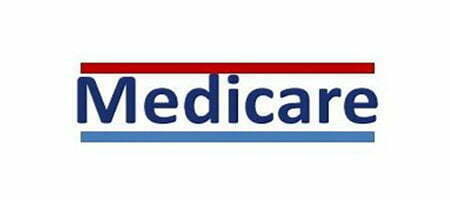Developing fibroids in your uterus can cause you to have heavy periods, back pain, and many other physical issues. As your fibroids grow, you might become very fatigued. This problem can prevent you from enjoying your hobbies and completing household tasks. At Zenith Vascular & Fibroid Center in Memphis, TN, we can address your fibroids by providing you with a uterine fibroid embolization treatment.
How Successful Is Uterine Fibroid Embolization?
A uterine fibroid embolization treatment is a medical technique that will shrink the fibroids that are causing you to experience negative symptoms. During your treatment, we will use minimally invasive methods to prevent blood from flowing to these fibroids. This technique, which is also known as a UFE, has a very high success rate.
Scientific evidence has shown that this technique has an average success rate of about 90%. In addition, about 80% of people did not have any negative symptoms five years after they received this minimally invasive treatment. As a result, these people did not need to get additional fibroid treatments or receive hysterectomies.
How Do I Know if I Have Uterine Fibroids?
Fibroids can negatively affect your health in a variety of different ways. Your specific symptoms will depend on the number of fibroids that you develop, the size of your fibroids, and other variables. That said, there are several common issues that may indicate that you have fibroids in your uterus.
Experiencing Period Problems
Developing a very heavy menstrual period is one of the most common signs of uterine fibroids. As this problem becomes worse, you might have difficulty leaving your home to perform errands and other tasks. Further, you may stain your clothing and bedsheets. In addition, you might have to wake up during the night to change your tampons or pads.
Your fibroids can also cause you to have menstrual periods that last for a very long time. Experiencing these lengthy periods can cause you to feel tired and uncomfortable. In addition, you may begin to bleed during other times of the month.
Developing Urinary Challenges
If you have uterine fibroids, you might begin to go to the bathroom more frequently. When you try to urinate, you might be unable to completely empty your bladder. In addition, you may feel constipated and bloated.
Experiencing Other Symptoms
In addition to the problems described above, uterine fibroids can cause you to feel pain in your pelvic area, legs, and lower back. These sensations can distract you during your work and make it difficult for you to take part in social activities. In addition, you may feel discomfort during sexual activities.
What Techniques Can Be Used To Diagnose This Medical Issue?
Your gynecologist might find fibroids when you are receiving a pelvic examination. If you are having period problems and other symptoms, your healthcare provider might advise you to receive an ultrasound. During this imaging test, your provider will gently place an ultrasound machine inside your vagina or move this device over your skin. This technique will allow your provider to make images of your ovaries and uterus.
If you are having issues with your menstrual periods, your gynecologist may instruct you to get blood work. Your healthcare provider can also use a device called a hysteroscope to look at your uterus. This device will allow your provider to examine your cervix and analyze the walls of your uterus.
What Factors Increase My Risk of Developing Uterine Fibroids?
Researchers do not completely understand the reasons why some women develop these growths in their uteruses. However, they think that hormones, age, and other factors can increase women’s chances of experiencing this medical issue.
Your Family History
This health condition tends to run in families. If your female relatives developed these growths, you will be more likely to suffer from this health problem.
Your Hormonal Changes
Your hormone levels can also affect the condition of your uterus. If you produce a large amount of estrogen and progesterone, you will be more likely to develop fibroids during your lifetime. Going through pregnancy will improve your production of these important hormones. As a result, pregnancy will increase your risk of developing these growths.
When you stop having periods, you will start to produce lower amounts of progesterone and estrogen. This hormonal change will probably cause your back pain, urinary issues, and other symptoms to decrease.
Why Should I Consider Using a UFE To Treat My Fibroids?
This state-of-the-art treatment offers many benefits that traditional fibroid treatments and procedures do not provide.
It Will Preserve Your Uterus
When you start researching treatment methods, you will probably learn about a medical procedure called a hysterectomy. During this procedure, a medical provider will remove your uterus. Although a hysterectomy will eliminate your fibroids, it can cause you to experience other problems. In particular, you may enter menopause after you receive this procedure.
Going into menopause can cause you to experience mood swings, hot flashes, and sleep issues. Further, you might have bladder issues and other problems after you receive a hysterectomy. Fortunately, we will not take out your uterus during your UFE. In addition, we will not damage your bladder and other organs during this medical treatment.
It’s an Inexpensive Option
Although a hysterectomy will relieve your negative symptoms, it can be a very expensive way to treat your fibroids. In particular, you might have to spend a large amount of money on hospital costs and anesthesia fees.
Further, a hysterectomy can have a very long recovery period. Spending time away from your job and hiring people to care of your children can also add to your costs. In contrast, a UFE is an outpatient treatment that has a quick recovery period. Since your downtime will be very brief, you won’t have to spend a large amount of money paying for childcare and other expenses.
It Will Improve Your Wellbeing
Experiencing lengthy, uncomfortable periods can decrease your energy levels and prevent you from being productive when you are at work. In addition, you might not have enough energy to enjoy your favorite hobbies and spend time with your friends and family members. Over time, you might begin to feel isolated and depressed.
A UFE is a very effective way to shrink your fibroids and improve your periods. As your menstrual periods become more comfortable and your other symptoms decrease, you will begin to feel stronger and more energetic.
It’s Very Gentle
If you use a hysterectomy to treat your fibroids, you will probably need to stay in the hospital for a while. In addition, you may need to avoid exercise, stay home from your job, and make other major changes to your schedule for several weeks. This lengthy period of downtime can cause you to experience difficulties at your workplace.
Fortunately, a uterine fibroid embolization has a much shorter recovery period than a hysterectomy. On average, your medical treatment will take one to two hours to finish. After we have completed your treatment, you will need to remain in our outpatient clinic for a short period of time. During this time, we will observe your reaction to your treatment. After several hours have passed, you will usually be able to go back to your house or apartment.
Am I Eligible for This Medical Treatment?
If your fibroids are causing you to have discomfort, heavy periods, and other physical issues, you may be eligible to receive a UFE. Before we perform this treatment, we will need to talk about your periods, review your physical symptoms, and discuss any other health issues that you have. In addition, we may use medical tests to analyze your fibroids.
To be eligible for this medical treatment, you will need to be over the age of 18. In addition, you cannot use this technique to improve your fibroids if you are experiencing a pelvic infection or are pregnant.
What Should I Expect During My Medical Treatment?
Before we treat your fibroids, we will have an initial consultation with you. During this meeting, we will provide you with a list of instructions that you will need to follow during the days before your UFE.
Preparing for Your UFE
We may ask you to temporarily refrain from using certain over-the-counter and prescription medications. In addition, you might have to adjust the supplements that you are taking. Further, we may tell you not to eat specific types of food during the day before your uterine fibroid embolization.
Beginning Your UFE
You will receive your UFE at our comfortable outpatient suite. We will begin this treatment by creating a small incision in your thigh. This incision will allow us to use a catheter to access your fibroids. We will use an x-ray machine to help us direct this catheter toward your uterus.
After we reach your fibroids, we will use our catheter to release a series of embolization spheres. These spheres will stop blood from nourishing the fibroids in your uterus. As the blood flow to your fibroids diminishes, these uterine growths will become smaller. Decreasing the size of your fibroids will improve your uncomfortable periods, urinary problems, and other unpleasant symptoms.
How Long Will I Spend Recovering From My UFE?
Since we will use minimally invasive techniques to shrink your fibroids, your recovery period will be very short. On average, you will have seven days of downtime.
Taking a Rest
You are likely to feel fatigued for several days. During the start of your recovery period, we will advise you to avoid taking baths. In addition, we will instruct you to use sanitary pads instead of tampons and menstrual cups.
Changing Your Diet
You will need to remember to drink plenty of liquids while you are adjusting to this medical treatment. In addition, we may instruct you to take regular fiber supplements and avoid eating spicy foods.
Taking Walks
You will need to avoid running, taking exercise classes, or performing other challenging physical activities. However, you should make an effort to engage in gentle exercise during your recovery period. In particular, we will ask you to go on daily walks during this time. These gentle walks will enhance your digestion and improve your blood flow.
Improve Your Health
Experiencing very heavy periods, uncomfortable cramps, and other negative symptoms can prevent you from succeeding at your job, caring for your children, and accomplishing other important tasks. Receiving uterine fibroid embolization is an excellent way to fix these health issues. To learn more about this minimally invasive treatment, you should schedule an initial consultation at Zenith Vascular & Fibroid Center in Memphis, TN.






